Northern Territory police review knife-gun maxim ahead of the Kumanjayi Walker inquest
NT Police Force revises its use of force training ahead of Kumanjayi Walker coronial inquest.

The Northern Territory Police Force is revising its use of force training – telling officers that the decades-old maxim “knife equals gun” no longer automatically applies – ahead of the coronial inquest into Kumanjayi Walker’s death.
On Tuesday, the NT Police Force disseminated an internal broadcast to all sworn members to “address an identified erroneous belief or misconception amongst some members that ‘knife equals gun’ in all circumstances when members are faced with a physical threat to themselves or others during their operational duties”.
The broadcast, authorised by NT Police College Commander Hege Burns, said the phrase “knife equals gun” may have derived from past training and had “since been used incorrectly, poorly explained or wrongfully interpreted”.
“This matter is brought to the attention of all sworn members as the phrase was subject of proceedings during the supreme court trial of constable Zachary Rolfe,” it said.
“Operational safety training does not use this phrase as it bears no true resemblance in relation to a member’s situational awareness, available tactical options and decision-making when confronted with a weapon, including an edged weapon.”
This comes after Constable Rolfe was in March found not guilty of murdering Walker at the remote outback community of Yuendumu.
Constable Rolfe shot Walker three times after the Indigenous teenager stabbed him with scissors during an arrest in November 2019.
The police phrase “knife equals gun” loomed large throughout the five-week murder trial in Darwin earlier this year. The defence said Constable Rolfe had been following his police training when he fatally shot Walker while the prosecution said he could have resorted to a less than lethal force option after firing the first shot.
Constable Rolfe’s lawyer, David Edwardson QC, said his client was “taught, trained and drilled as a member of the NT Police Force that edged weapons equals gun … In other words, where a police officer is confronted with an edged weapon, the appropriate response is to draw your weapon and be prepared to use it.”
Constable Rolfe told the court his training had dictated “if someone was threatening us with an edged weapon to go for our firearm unless that was impossible”.
The internal broadcast to all serving members contradicted the prosecution’s police witnesses called during the trial who almost unanimously testified to being taught that the appropriate response when faced with an edged weapon was to draw their firearm and be prepared to use it.
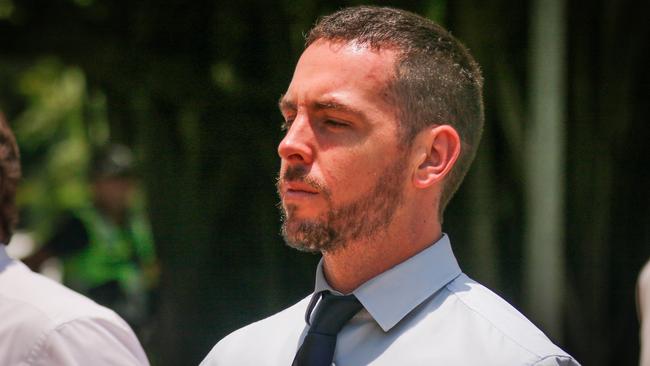
The experienced police officer who deployed Constable Rolfe to arrest Walker, Senior Sergeant Shane McCormack, told the court he would have his gun out and be “100 per cent” prepared to pull the trigger if threatened with a knife.
Sergeant McCormack, an officer of 17 years in both the NT and New Zealand, said he had been taught “knife equals gun” in “two police forces”.
“All my training has been knife equals gun,” he said under cross-examination.
“It means that if you present a knife to me, I’m not going to take out a knife as well. We’re not going to have a knife fight. That’s not how it’s going to work. I’ve been given a tool to protect me and other people.
“The government sees fit for me to have that tool. You take out a knife, you’ve increased the level of force I may use.”
Another senior officer, Sergeant Evan Kelly, told the court he had been taught “knife equals gun” in “every bit of training I’ve done so far involving defensive tactics”.
“The training we’re given is that the response to an edged weapon is a firearm,” he said.
Constable First Class Mitch Hansen, who completed defensive tactics training with Constable Rolfe, confirmed the teaching along with others.
The court also heard “knife equals gun” was standard training across all police jurisdictions.
Expert witness Ben McDevitt, who was once responsible for all of the Australian Federal Police training, told the court the NT police tactical options model was consistent with other jurisdictions. He said while there were some slight variations in the teachings such as the acronyms used, the training was almost identical and mirrored what most of the police services across the country now operated on.
Mr McDevitt also said that, from a training perspective, the default response to being threatened with an edged weapon would be the firearm.
Tuesday’s internal police broadcast went on to say that when confronted with an edged weapon, blunt weapon or any other weapon, “members should in the first instance consider the principles of ‘Threat, Time, Distance and Cover’.”
“When faced with a life-or-death situation in which a member has to make a decision to use force that is likely to cause death or serious harm, lethal force should always be used as a last resort and only to protect life,” the memo stated.
“If other tactical options are available, members need to risk-assess and consider if there is a less than lethal alternative and is it likely to be effective.
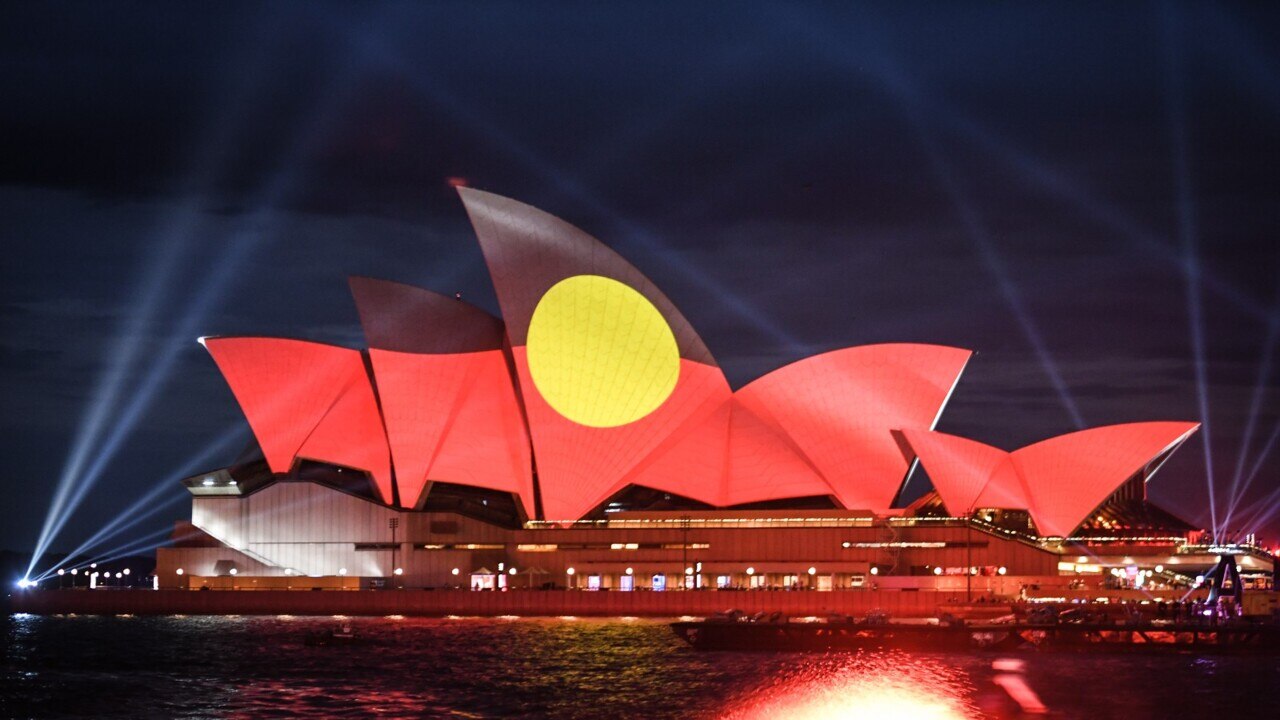
“Risk assessment and planning should always form part of any response when entering into an unknown environment and to turn an uncontrolled environment into a controlled one.”
NT police sources told The Australian that frontline officers already assessed the risk in each situation and that the broadcast appeared to be an attempt to show the coroner that changes had been made since Walker’s death.
“Why are they saying it is a misconception?” one source said.
“In every single defensive tactics training course I’ve done, there is a drill where your partner has a fake knife and you are instructed to immediately start stepping back to create distance and draw your gun.
“I have done that drill so many times.”
Tactical police expert and retired West Australian police detective senior sergeant Greg Balfour said officers always considered a host of factors, including the offender’s intent, their physical ability to carry out the attack and their proximity before deciding which force option would be appropriate.
“In Zach Rolfe’s case, there was no time to take cover.
“The imminence of threat was there,” Mr Balfour said.
“He had to respond in the manner which he did, rather than conduct a tactical retreat and run away and leave the situation uncontrolled.”
“On top of that, he was of the apprehension that his partner’s life was under threat as well, so he had to respond.”
Mr Balfour spent more than 36 years in the WA police as a frontline officer, criminal investigator, homicide detective and Tactical Response Group tactical commander before retiring in August 2018.
“Generally speaking, if you’re confronted with an offender that has an apparent ability to carry out his intended attack on you, in most cases you would be justified in at least drawing your firearm,” he said.
“And if you had time, reassess. And if possible, use another force option.
“But in the situation confronted by Zach Rolfe, knife did equal gun”.
The NT Police Force broadcast said its current operational safety and use of force instruction would soon be updated and incorporated into a single general order that would come into effect in the near future.
A spokesman said the NT Police Force did not comment on operational procedures or training.


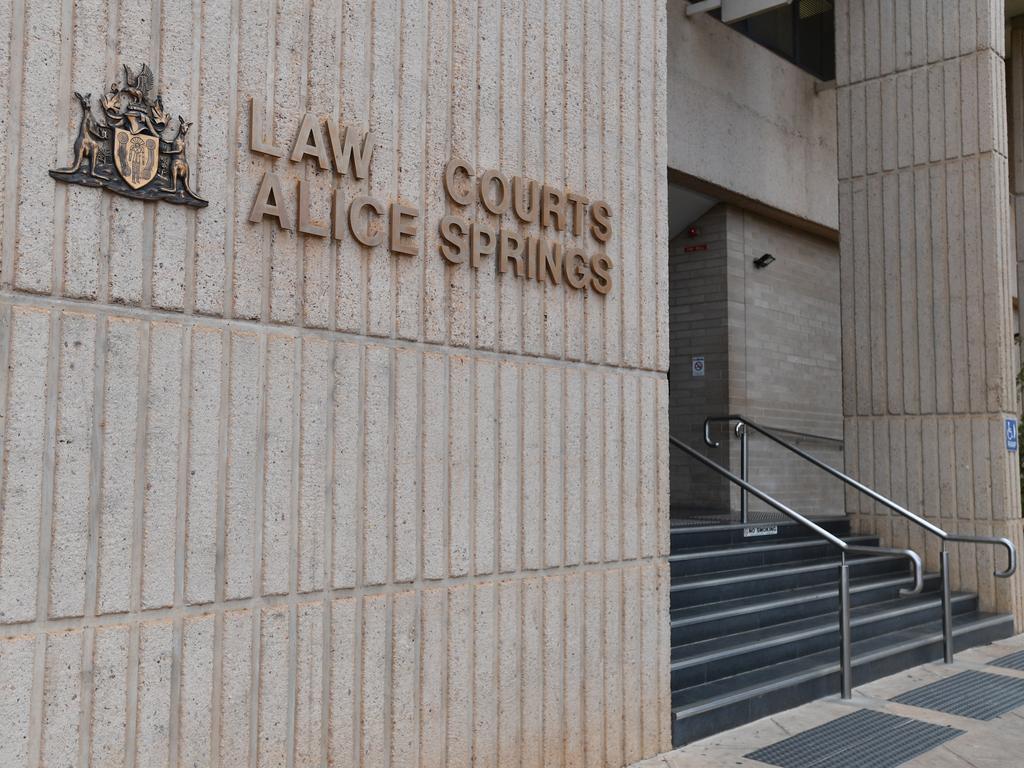
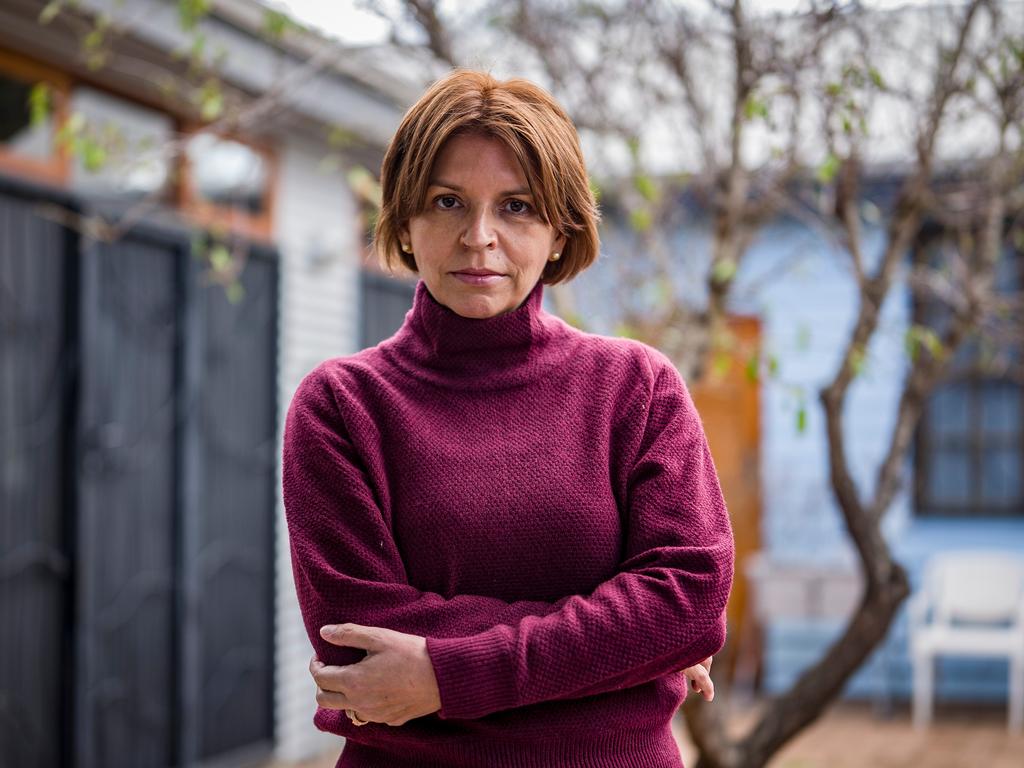



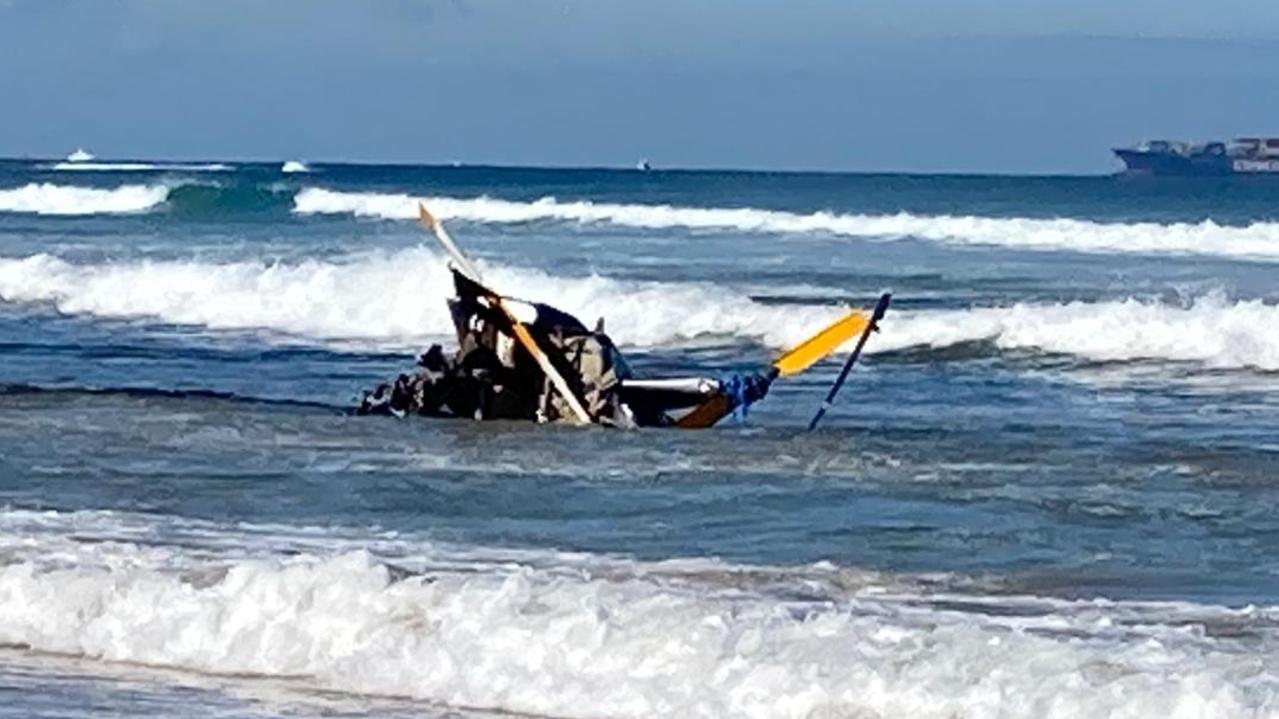
To join the conversation, please log in. Don't have an account? Register
Join the conversation, you are commenting as Logout